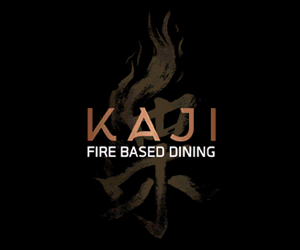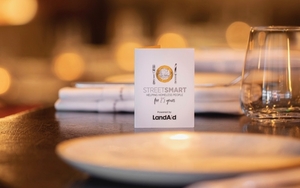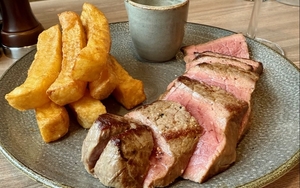LAST month saw celebrity chef and campaigner Hugh Fearnley-Whittingstall wage war on food waste. The two-part BBC special revealed how strict aesthetic standards in supermarkets mean an estimated 30% of vegetables never reach the shelves, how the average family bins £700-worth of food annually and how reckless fast food outlets like KFC throw away a million chickens a year.
Our flagship Leeds branch once received 250 kilos of mushrooms... for chefs, there’s nowhere like it
Such programmes are slowly but surely pushing the topic into public consciousness but few people realise the true extent of UK food waste: with fifteen million tonnes wasted yearly, yet 5.8 million people living in food poverty, the issue is fraught with political and social consequences. Things don’t improve on a global scale either; this unappetising banquet of facts illustrates just how potholed the journey from plough to plate really is, amounting to a phenomenal third of produce being squandered worldwide.
Enter The Real Junk Food Project (RJFP), a fantastic social enterprise that is tackling food waste at the root. How? ‘Pay as you feel’ organic cafes that collect unwanted - yet quality-assured - food from restaurants, allotments and supermarkets (whose premature ‘best before dates’ are one of the main culprits) and whip it up into delicious, healthy meals for anyone and everyone on a donation basis.
With locations worldwide, and 100+ projects across the UK, Manchester is soon to get in on the action with a permanent restaurant at Shudehill's Wonder Inn - having meanwhile hosted various successful pop up events. Director Corin Bell has been working in food sustainability for several years, most recently at The Gleaning Network, and her passion for eliminating food waste is such that she hopes to do herself out of a job: after all, she says, “If The Real Junk Food Project is still needed in twenty years, it won’t have succeeded in its mission”.
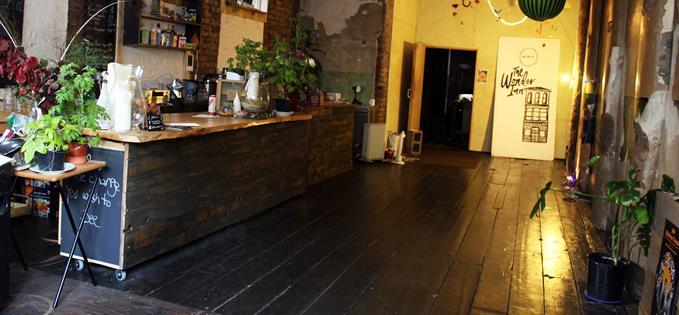 The Wonder Inn, Shudehill
The Wonder Inn, ShudehillAmbitious, yes, but with people like Corin at the helm, change might just happen. She points out that once upon a time, supermarkets only sold battery eggs; now, due to enough campaigning and subsequent public demand, 99% of eggs sold are free range. With RJFP she hopes to similarly raise enough awareness to transform people’s attitudes to waste food and eventually the erroneous food industry as a whole.
Already firms are clamouring to help the cause, with a roster of volunteers working towards a tentative Christmas opening in Manchester and restaurants - undergoing refurbishment - kitting the place out with old furniture and equipment that were destined for the skip. Lights are being made from old champagne bottles and oil drums, tables from wooden pallets and a community board from recycled corks. The result is a pared down, minimalist aesthetic with a splash of innovation and a sleek, stainless steel kitchen to boot. Nowhere else, Corin believes, has taken upcycling to the same extreme. Handily, it perfectly mirrors the ethics of both RJFP and its new home, The Wonder Inn.
So what else has Corin got in the pipeline? “I want to run workshops on using up seasonal gluts, making things like jams and sauerkrauts. We’re also in discussion about providing apprenticeships with Manchester Growth Hubs and eventually hope to provide up to ten living wage jobs, though volunteers will always be essential.
"We also plan to hold monthly ticketed a la carte evenings, where each time a different chef will be challenged to create a three-course meal from available provisions”. She laughs. “For RJFP, it’s like Ready Steady Cook every day. Our flagship Leeds branch once received 250 kilos of mushrooms that were soon to expire; they had to create a two-day menu with every mushroom dish they could think of. For chefs, there’s certainly nowhere like it.
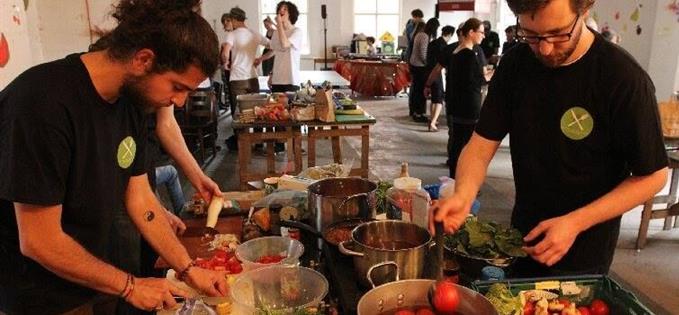 Making waste food canapés at Disco Soup
Making waste food canapés at Disco Soup“More than anything though, I want the restaurant to be a place where everyone can have access to great, healthy food: there won’t be that same segregation between people who can afford it and those that can’t. People on a low income often rely on food banks, which don’t have the facilities to preserve fresh produce; hence, they give out canned, processed meals with no nutritious value. We want to be a low carbon, healthy alternative.
"Our market isn’t restricted either, the idea is to attract as wide a demographic as possible and be a modern, creative place for everyone to enjoy. Being on the edge of the Northern Quarter helps; it’s full of the kind of innovative start-ups and grassroots movements we’re all about”.
“UN law says access to food is a basic human right,” she concludes. “Clearly our system isn’t enforcing this but, with enough people onboard, it’s something I believe we can change”.
Having rarely heard such an impassioned, informed outburst, I don’t doubt it. Let’s just hope Corin gets her wish and The Real Junk Food Project’s exit is as timely as its entrance. Meanwhile, look forward to hot balanced meals with a generous serving of philanthropy.
To pledge support or find out more, visit realjunkfoodmanchester.co.uk or therealjunkfoodproject.org






